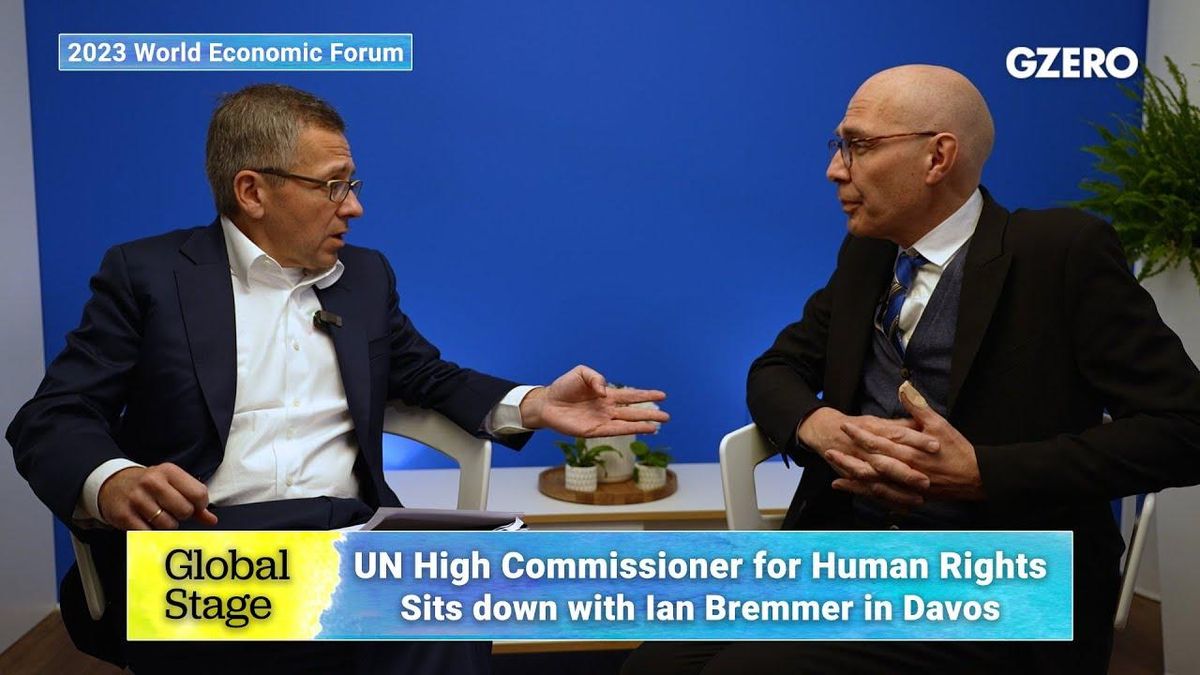Volker Türk, the new UN High Commissioner for Human Rights, is surprisingly candid about one of his organization's most famous shortcomings.
The Security Council, which includes Russia as a permanent member, is "dysfunctional" on Ukraine. On the other hand, he adds, the General Assembly has seen a sort of revival in how much it's been able to help the country.
In a Global Stage delegate interview on the ground in Davos, Türk tells Ian Bremmer that believes it is critical that the Ukrainians, just as much as the Russians, abide by international human rights law. And he's been in close contact with the Ukrainian prosecutor general, who assures him he is investigating potential war crimes within his country's military.
Moving elsewhere in the world, Türk did not mince words when it comes to the Taliban, “There is no country in the world that treats women in the way that Afghanistan does and the Taliban do.” So, what can we do about it? Türk calls for "a unified stance that this is not part of the international order."


















